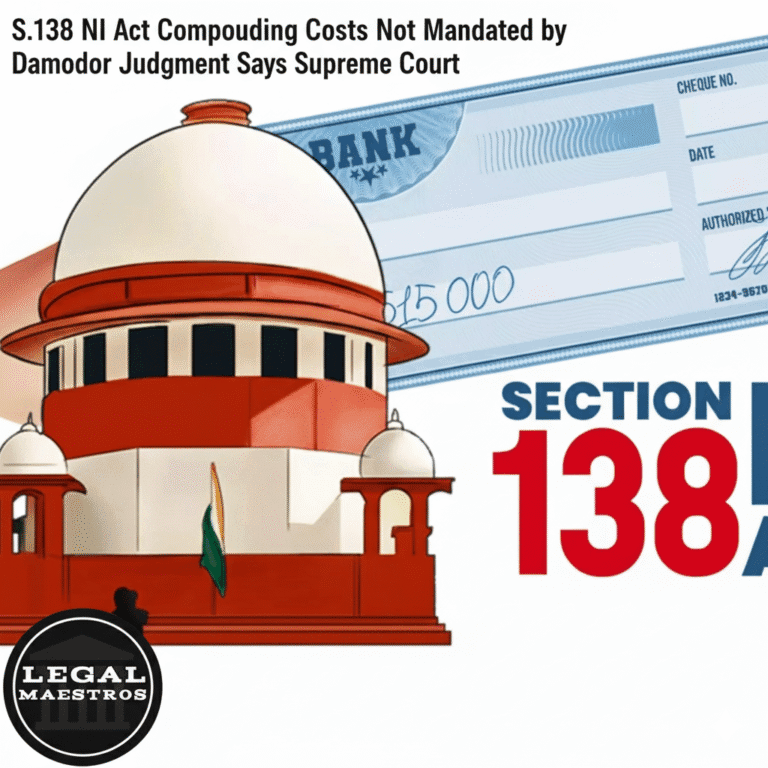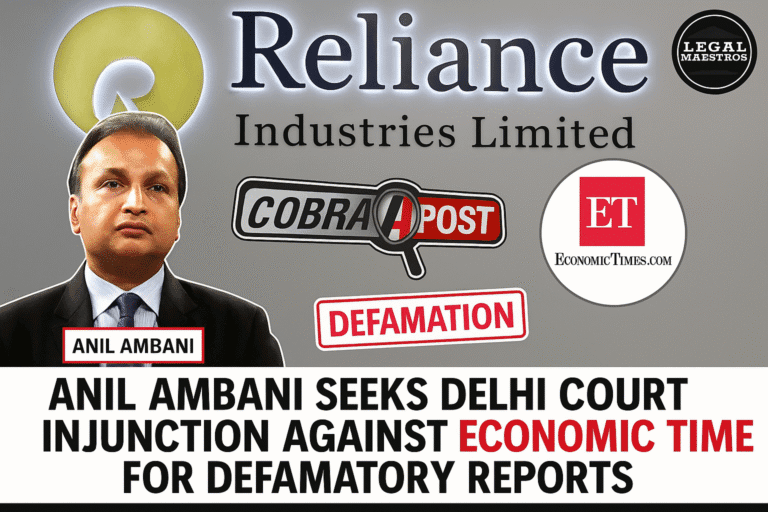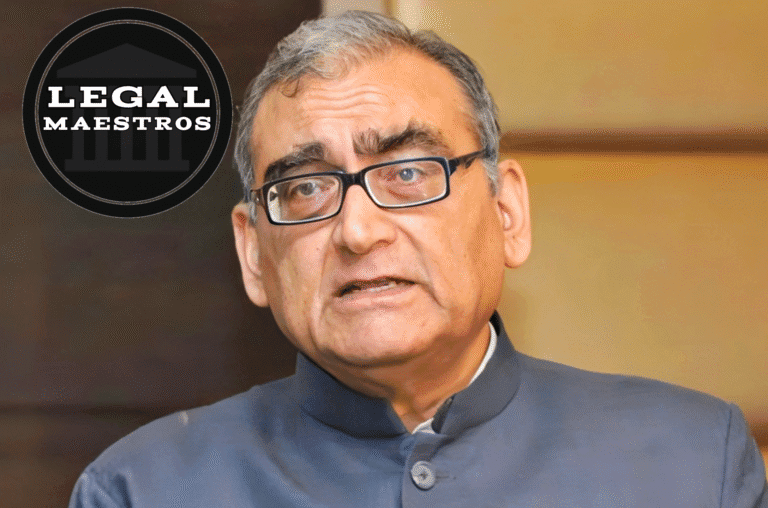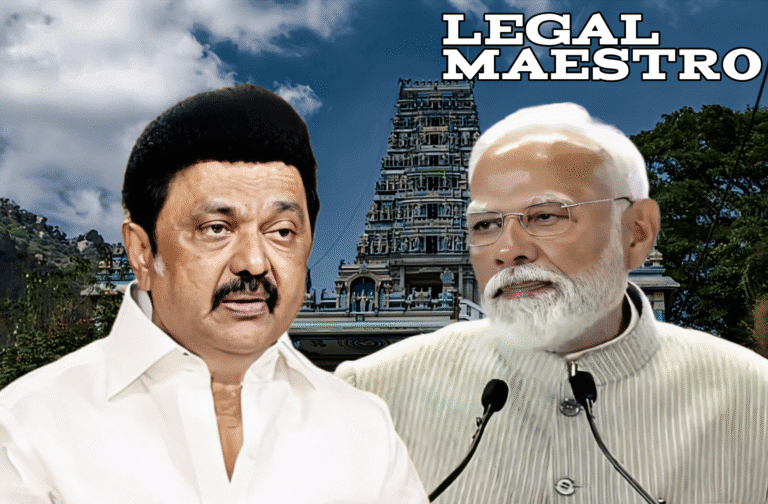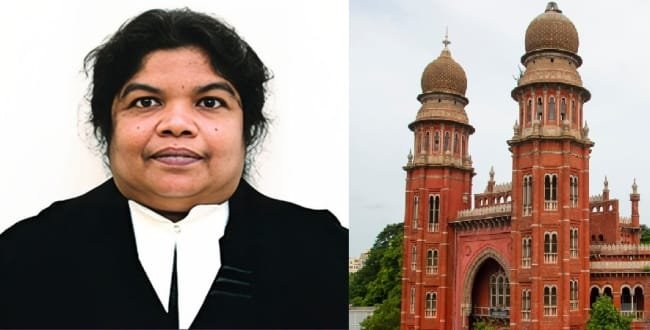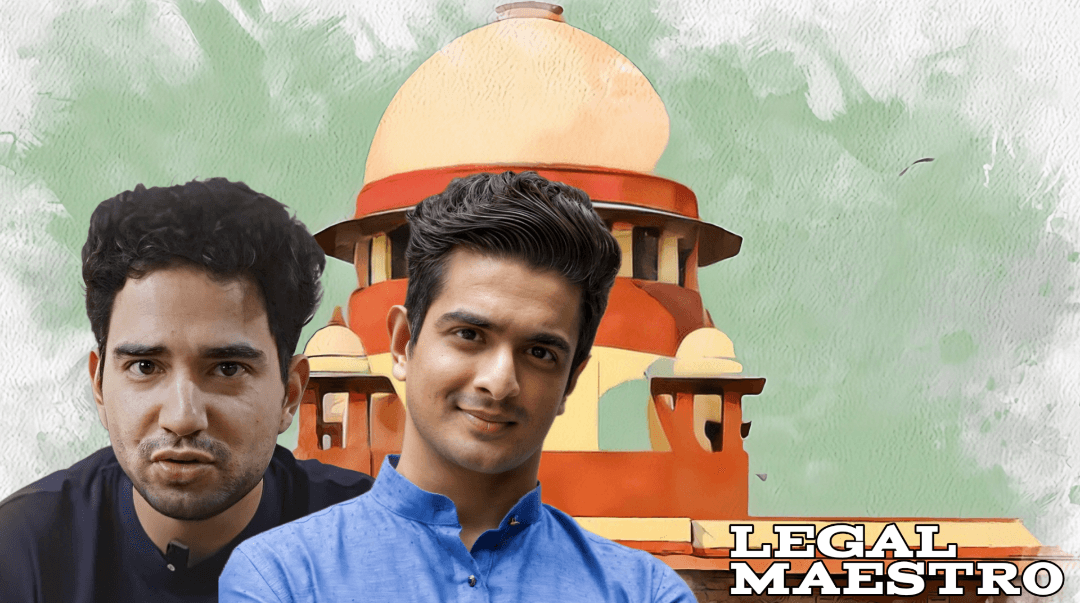
A straightforward joke that was made on the YouTube show “India’s Got Latent” at the beginning of February was the spark that ignited a chain of events that has caused the digital artist community in India to become agitated.
An incident that started out as a brief remark made by Ranveer Allahbadia while he was performing on stage eventually resulted in many First Information Reports (FIRs), summonses, and motions made in the courtroom.
Co-host and comedian Samay Raina found himself embroiled in the scandal alongside Allahbadia, who was accused of promoting obscene content. Both of them were accused of taking part in the controversy. Following several weeks of legal maneuvering, the months of April and May brought about new developments, which indicated that this case will continue to continue to change the limitations of online expression in India.
For any queries or to publish an article or post or advertisement on our platform, do call at +91 6377460764 or email us at contact@legalmaestros.com.
Historical Context of the Case
Samay Raina is the host of the talent showcase series “India’s Got Latent,” which has guest judges who provide analysis and comedic commentary alongside the contestants. Allahbadia made a statement in one of the episodes that made reference to a hypothetical sexual scenario that involved the participants’ parents involved.
Despite the fact that the comment was meant to be humorous, it caused viewers to feel outraged, which resulted in complaints being filed with the authorities in a number of different jurisdictions.
It was asserted in these complaints that the remark breached India’s legal criteria of obscenity, which are dependent on whether or not the content appeals to prurient curiosity or offends the prevalent communal standards.
For any queries or to publish an article or post or advertisement on our platform, do call at +91 6377460764 or email us at contact@legalmaestros.com.
For More Updates & Regular Notes Join Our Whats App Group (https://chat.whatsapp.com/DkucckgAEJbCtXwXr2yIt0) and Telegram Group ( https://t.me/legalmaestroeducators )
The allegations and the FIRs
Almost immediately after the episode was broadcast, police stations from Mumbai to Assam filed First Information Reports (FIRs) against Allahbadia, Raina, and other contestants, including Ashish Chanchlani and Apoorva Mukhija, who were also judges on the show.
Those who filed complaints stated that the comments were offensive and damaged public opinion because they demonstrated a disregard for the importance of family values. While Assam and other states pursued their investigations in parallel, the Mumbai Cyber Cell, which is part of the Maharashtra Cyber police, merged several of these allegations into a single investigation.
For any queries or to publish an article or post or advertisement on our platform, do call at +91 6377460764 or email us at contact@legalmaestros.com.
Both the parts of the Indian Penal Code that deal with obscenity and the provisions of the Information Technology Act that are pertinent to the case were cited in each of the FIRs that were filed against the creators.
Actions Taken in the Courts So Far
Both Ranveer Allahbadia and Samay Raina were served with repeated summonses by Maharashtra Cyber, which required them to record statements under strictly controlled conditions.
In the beginning, Allahbadia did not show up on the first appointed date, citing professional duties. Raina, on the other hand, requested a postponement due to tour obligations, but she was not granted one. Midway through the month of April, both individuals made an appearance before the investigators and provided in-depth explanations of the events that transpired. They asserted that the comment was unscripted banter rather than a deliberate provocation.
For any queries or to publish an article or post or advertisement on our platform, do call at +91 6377460764 or email us at contact@legalmaestros.com.
Acts of Statements Being Recorded
Not only Allahbadia and Raina, but also other judges and production workers, were brought before the investigators to provide their testimony, which was meticulously recorded. The purpose of these sessions was to determine who were responsible for writing the controversial remark and whether or not there was an intention to shock or insult viewers.
It was argued by the participants that the style of the event encouraged spontaneous and lighthearted conversation, and that no one anticipated that the statement would be interpreted as being legally obscene.
As the investigation advanced, officials from Maharashtra Cyber stated that they had discovered sufficient evidence to label the comments “obscene” according to India’s legal criteria, which assesses whether content appeals to lascivious or prurient interests.
For any queries or to publish an article or post or advertisement on our platform, do call at +91 6377460764 or email us at contact@legalmaestros.com.
Interim Protection granted by the Supreme Court
In the midst of the investigations that were being conducted at lesser levels, Ranveer Allahbadia requested that the Supreme Court grant him respite from arrest and that his passport be returned to him.
He was granted interim protection from any new FIRs and from arrest in cases that had already been filed by a court in the middle of April. The bench made this decision after recognizing that unchecked prosecution may potentially stifle free expression among digital creators.
The Court referred to the comment as being offensive, but it emphasized that creative expression in humor frequently walks the line between being impolite and being offensive. Specifically, it instructed the government counsel to determine whether the investigation had reached its logical conclusion or whether additional investigation was necessary before any coercive action could be taken.
For any queries or to publish an article or post or advertisement on our platform, do call at +91 6377460764 or email us at contact@legalmaestros.com.
Confiscation of Passports and Other Related Prescriptions
The highest court not only granted Allahbadia protection against arrest, but it also addressed his appeal to have his passport returned to him. Concerned that he could try to avoid the investigation that is currently underway, the authorities had taken his travel document as a preventive measure.
He was permitted to use the passport for professional travel as a result of the intervening order; nonetheless, he continued to be subject to the investigators’ ultimate directions. This nuanced attitude highlighted the judiciary’s endeavor to strike a compromise between the rights to a fair trial and the state’s interest in enforcing responsibility.
The First Chargesheet Has Arrived on the Scene
Late in the month of April, the Additional Director General of Maharashtra Cyber made a public announcement that the initial chargesheet would be submitted in the near future. A chargesheet is a document that formally summarizes the story of the prosecution as well as the precise legal laws that were utilized.
For any queries or to publish an article or post or advertisement on our platform, do call at +91 6377460764 or email us at contact@legalmaestros.com.
The submission of this document signals a transition from the level of investigative questioning to the stage of anticipatory advocacy for the trial. In the event that the charges are brought forward, the accused will be compelled to present their case in front of a magistrate, and the court will decide whether or not to bring charges for trial.
The fact that the chargesheet was made available after the statements had been recorded is an indication that the investigators have faith in the sufficiency of the evidence they have gathered.
Responses from members of the YouTube community
Across India’s enormous digital environment, the case has sparked controversy among various stakeholders. A great number of creators have expressed their concern that legal action taken over a single joke that is considered to be offensive could establish a precedent that would restrict creative expression on the internet. Not only have comedians and vloggers questioned whether or not the same rules apply to televised humor, but they have also questioned whether or not internet media is being examined more strictly. On the other hand, there are many who claim that public personalities should adhere to the same standards of decency as conventional artists, and that it is equally necessary to safeguard the sensibilities of viewers regardless of the platform they are using.
For any queries or to publish an article or post or advertisement on our platform, do call at +91 6377460764 or email us at contact@legalmaestros.com.
The Public Opinion and the Norms of Human Society
Outside of the creative community, the dispute has inspired a wider range of people to contemplate the values that society holds in this age of digital technology. The case is seen as an essential declaration of cultural limits by older audiences, who were weaned on media norms that were more conservative.
The reaction appears to be disproportionate for younger viewers, who are accustomed to more edgy content from global platforms. This demonstrates a generational disparity in the level of tolerance for risqué humor.
Policymakers have chimed in, warning that failing to regulate could lead to a flood of damaging content. On the other hand, supporters for free speech have cautioned against expansive interpretations of obscenity, which could provide law enforcement widespread authority.
For any queries or to publish an article or post or advertisement on our platform, do call at +91 6377460764 or email us at contact@legalmaestros.com.
Implications for the Regulation of Digital Assets
This judicial struggle is taking place against the backdrop of continuing talks currently taking place in Parliament regarding the regulation of content found online. It is a move that many people in the creative and technology industries are concerned about since it proposes the establishment of an oversight body that would pre-vet or remove information that is regarded to be damaging.
Because it illustrates the practical difficulty of enforcing obscure terms in the Information Technology Act and the Indian Penal Code against dynamic, user-generated information, the “India’s Got Latent” case has the potential to become a benchmark for future policy debates.
An examination of the changing relationship between comedy, jurisprudence, and community standards in India’s internet age is highlighted by the fact that the obscenity case involving “India’s Got Latent” is moving closer to charging formal charges.
For any queries or to publish an article or post or advertisement on our platform, do call at +91 6377460764 or email us at contact@legalmaestros.com.
Both the recording of statements and the temporary safeguards granted by the Supreme Court are significant milestones that will influence the subsequent phase, which is the formal trials. Due to the fact that Ranveer Allahbadia and Samay Raina are getting ready to defend their creative expressions, the upcoming weeks will be extremely important for them.
The judgment may establish significant precedents for the nation, determining the extent to which digital creators can push boundaries without putting themselves in danger of legal repercussions. The case serves as a poignant reminder that the line between humor and offense remains fundamentally subjective, and that traversing it requires both daring and care. This is especially important in the context of the media ecosystem, which thrives on spontaneity and provocation like never before.


